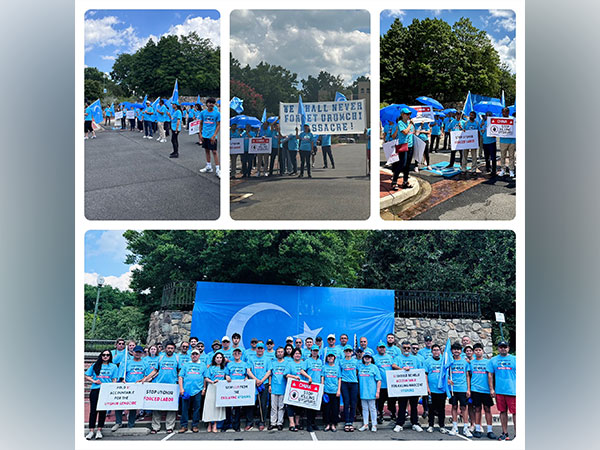The Urumqi Massacre: A Deep Dive into China's Ethnic Policies and Global Repercussions
The Urumqi Massacre, a pivotal event highlighting China's oppressive policies against ethnic minorities, resulted in 197 deaths and 1700 injuries. Human rights organizations argue these figures are underestimated. A recent EVCSP report sheds light on the ongoing repression and international condemnation faced by China.

- Country:
- China
The Urumqi Massacre is regarded as one of the darkest chapters in China's systemic oppression and genocide of ethnic minorities. Official sources report 197 deaths and 1700 injuries during the riots, but human rights organizations claim these figures are significantly downplayed, according to a report by the European Values Center for Security Policy (EVCSP) released on Tuesday.
The EVCSP report includes the statement of Dolkun Isa, President of the World Uyghur Congress, who described the Urumqi Massacre as the 'turning point from China's ethnic segregation and discrimination policy to the beginning of the genocidal ethnic policy.' He noted that the Chinese Communist Party (CCP) continues tightening its control over the East Turkistan region under the facade of counterterrorism. According to the report, genocidal activities persist in the Xinjiang Uyghur Autonomous Region (XUAR) despite criticism from the US and Europe over the forced labor of the Uyghur community.
Furthermore, China is rapidly stripping Uyghurs of their political, social, and cultural rights, leading to the erasure of Uyghur identity, culture, and customs. The CCP's response to the Urumqi riots involved mass arrests, detentions, and bolstered security operations across East Turkestan, coupled with torture and forced confessions. As a result, the XUAR has become one of the most surveilled areas globally, with advanced technologies used to monitor and control the population, claimed the EVCSP report, a Czech NGO founded in 2005.
The global community condemns China's genocidal activities in the XUAR and the Urumqi Massacre, leading to strained international relations and criticism from multiple human rights organizations. Calls for sanctions and other punitive measures have emerged. The Uyghur diaspora worldwide commemorates the Urumqi Massacre through various events. This year, the World Uyghur Congress organized a protest in front of the United Nations Office in Geneva to honor the victims of the peaceful demonstrations, noted the report. The Urumqi Massacre underscores critical issues of ethnic human rights, regional stability, international relations, and China's state policies. Addressing these issues requires a nuanced and informed approach that considers the historical, cultural, and socio-political complexities of the region.
(With inputs from agencies.)
ALSO READ
Rising Concerns in El Salvador: Missing Persons and Human Rights Under Bukele's Rule
UN Investigative Team to Address Human Rights Violations in Bangladesh
Water for All: A Human Rights-Based Approach to Transforming Lives in Asia and the Pacific
UN Deploys Experts to Investigate Bangladesh Human Rights Violations
UN Team Arrives in Bangladesh to Address Human Rights Violations Post-Hasina's Resignation










